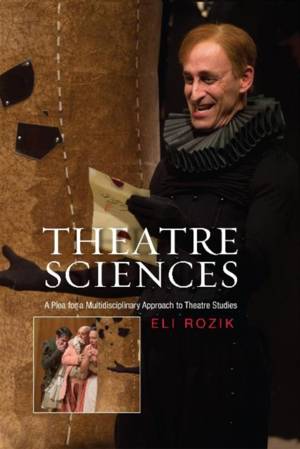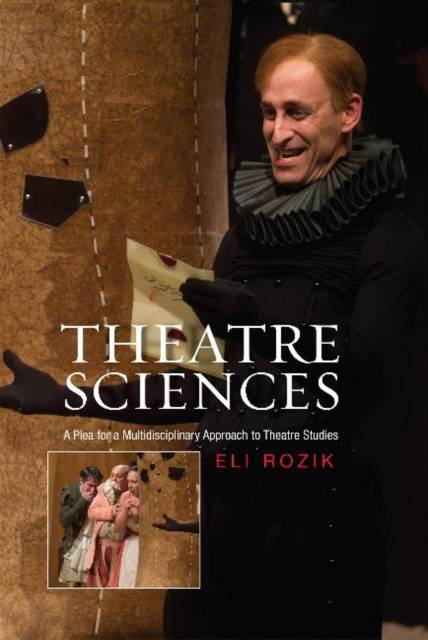
- Retrait gratuit dans votre magasin Club
- 7.000.000 titres dans notre catalogue
- Payer en toute sécurité
- Toujours un magasin près de chez vous
- Retrait gratuit dans votre magasin Club
- 7.000.0000 titres dans notre catalogue
- Payer en toute sécurité
- Toujours un magasin près de chez vous
Theatre Sciences
A Plea for a Multidisciplinary Approach to Theatre Studies
Eli Rozik
Livre broché | Anglais
45,45 €
+ 90 points
Format
Description
Traditional theatre semiotics promoted a scientific approach to theatre studies, albeit viewing semiotics as the unique discipline of research. Theatre Sciences: A Plea for a Multidisciplinary Approach to Theatre Studies suggests instead a multi-disciplinary approach, including the following theoretical disciplines: narratology, mythology, pragmatics, ethics, theatre irony, theory of genres, aesthetics, semiotics, theory of non-verbal figures of speech, rhetoric, psychoanalysis, reception theory, history, and sociology -- with semiotics being only one among equals. These disciplines are presented from the perspective of their possible contributions to a sound methodology of theatre-texts analysis. Traditional theatre semiotics, moreover, holds the view that the actual performance on stage is the genuine text of theatre, instead of the play-script. Despite this paradigmatic shift, however, this viewpoint has failed to produce commendable analyses of such texts. The alternative presupposition put forward in this volume entails a series of novel perceptions of the theatre-text and its possible impact on the experiencing spectator, whose role in reading, interpreting and experiencing the theatre-text is not less crucial than that of the text itself. This view presupposes that the theatre-text is a description of a fictional world generated by the theatre medium. The author also contests the age-old view that a theatre/fictional-text reflects a simple narrative structure, and suggests instead a complexity that consists of seven layers: personified, mythical, praxical, naive, ironic, modal and aesthetic -- with each one of them re-structuring the previous layer. Professor Rozik also presents and describes a semiotic layer that lends communicative capacity to the description of a fictional world, and two additional metaphoric and rhetoric layers, which structure the theatre experience. The underlying purpose is to illustrate the application of the aforementioned disciplines to these fictional layers, and eventually their joint application to entire theatre / fictional texts. Organisation of the book reflects the structure of a university course.
Spécifications
Parties prenantes
- Auteur(s) :
- Editeur:
Contenu
- Nombre de pages :
- 344
- Langue:
- Anglais
Caractéristiques
- EAN:
- 9781845197254
- Date de parution :
- 26-06-15
- Format:
- Livre broché
- Format numérique:
- Trade paperback (VS)
- Dimensions :
- 124 mm x 259 mm
- Poids :
- 607 g

Les avis
Nous publions uniquement les avis qui respectent les conditions requises. Consultez nos conditions pour les avis.






